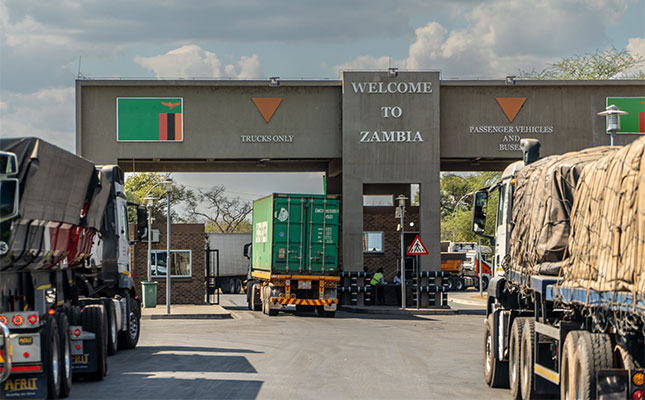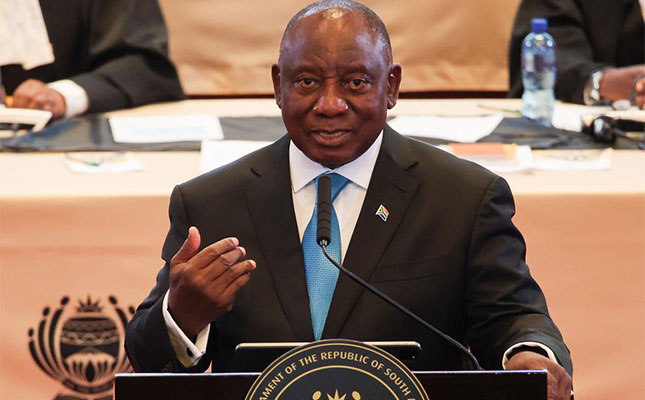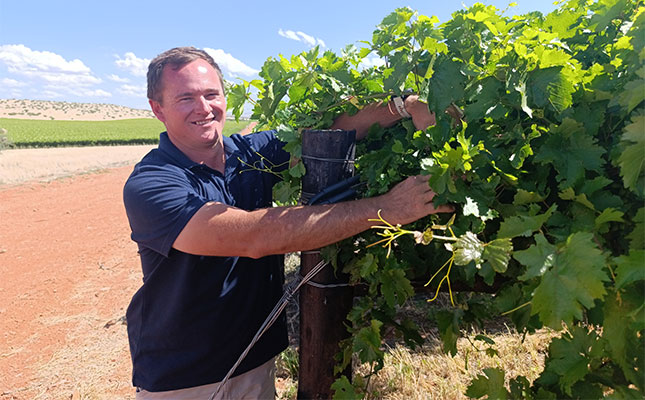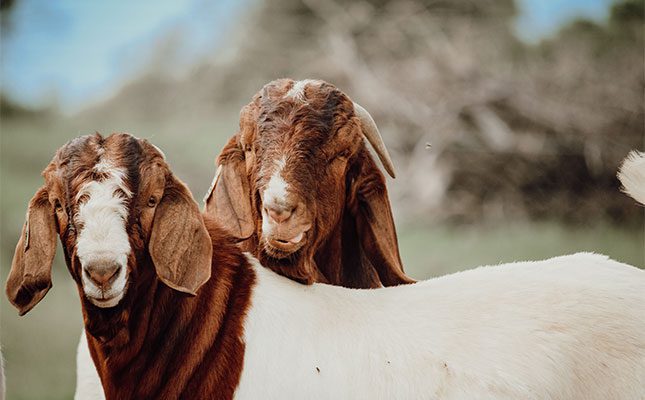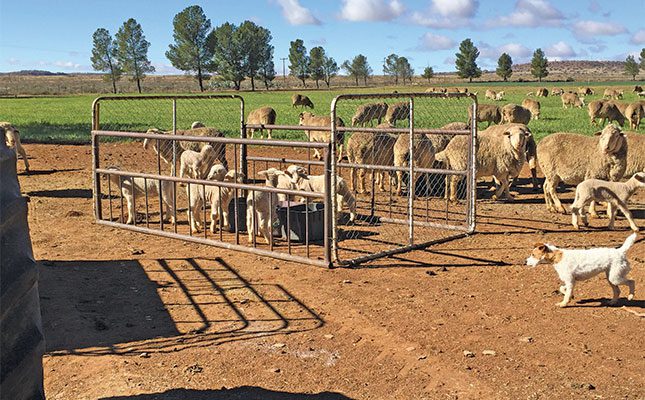
Carl Battenhausen says that although his family will never leave the wool industry, his aim is to diversify their portfolio. Currently, their Merino sheep herd is 3 200 ewes strong. Battenhausen’s passion for sheep is undeniable. In 2023, he claimed the well-deserved laurels for the best young ewe in the BKB Jongooi Interclub competition. The family also runs a small beef cattle herd.
But passion alone will not keep the boat afloat. Thus, Battenhausen ventured into the game industry.
To enter the trophy hunting business, his plan was to breed a variety of plains game species so that he could offer hunting tourists a stellar line-up. He focused on breeding a variety of colours of the most popular antelope.
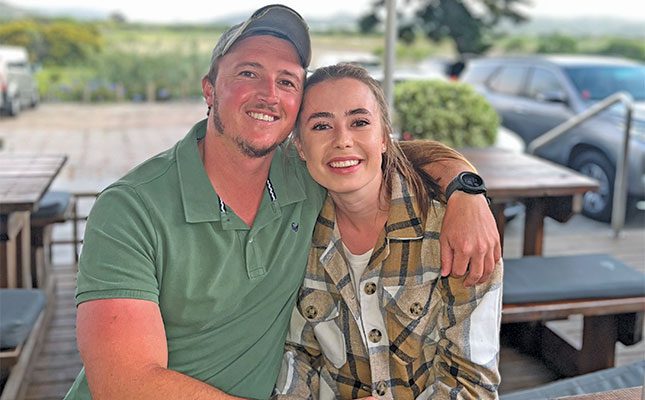
“We offer hunters a grand slam package, which means there are about four colours of each antelope species available on the farm. For instance, if they buy the springbok grand slam, they will be able to hunt the springbok in its four most popular colours, namely white, black, copper, and common. Hunters love this deal,” he adds.
Battenhausen says the tourists gladly donate the meat from the game they hunt to the local community. “It gives them the feeling that they are investing back into the community, and it is important to them to do that,” he says.
The game section of the farm has become a lucrative enterprise, and as the business grows, Battenhausen’s dreams grow with it. He is excited about the next step.
“We’re busy planning the building of a luxury lodge on our farm,” he says.
He is optimistic about the game industry.
“I think the price bubble has burst. It is easier for entry-level game farmers such as us to enter the game market and buy decent-quality animals at a more affordable price.”
Balancing various activities
Although it is important for Battenhausen to diversify the business, he still needs the main division of the enterprise, the sheep, to function like a well-oiled machine.
“It is important to prioritise the sheep, especially during shearing season,” he explains.
“Our income from game supports our sheep farming when times get tough. The sheep industry is volatile, and it gets more difficult to keep up as input costs rise, while the prices that we receive for top-quality products only stagnate.”
Battenhausen says that although their lots of wool presented for sale is of the highest quality, they won’t necessarily be rewarded for their hard work, as the market that influences the price they get paid is beyond their control.
They therefore focus on what they can control, such as the herd’s productivity. “At least we know that the markets for wool and lamb meat will always be there.”
He points out that lamb meat and wool prices have not increased substantially since 2017.
“Then we also need to withstand external challenges such as the drought seasons,” he says.
Battenhausen believes in making lemonade when life gives you lemons. “I need to have a plan in the back of my pocket at all times, so that I can make things work even when it seems like an uphill battle.”
Solid foundation
While Battenhausen is looking to the future, he also wants to honour the valuable lessons he has learnt from earlier generations. One of these lessons is the importance of veld management.
“I learnt early on that if you do not look after your veld, it will take decades to restore it to its former glory. Veld farming, as we call it, is just as vital as looking after your sheep herd. When it rains, we make sure that we give the veld time to recover, otherwise our animals’ condition will suffer when they feed on substandard veld,” he says.
Another aspect of farming that Battenhausen takes seriously is the need to plan.
“My main function as a farmer is to plan and delegate. When the sheep need me, I make sure that I prioritise them, and I follow a strict calendar when it comes to their health, so that they get the necessary vaccinations. When the shear season or lamb season approaches, I make sure I have enough time in my schedule to be there and see it through.”
In his planning sessions, Battenhausen makes room for regular maintenance.
“It is better to maintain a fence, for instance, than to replace the whole fence, which adds immense pressure,” he says.
He also likes to spot the gaps in his business and embrace them as opportunities to build and improve things on the farm.
“At the end of the day, I want our animals to perform optimally, so there is always something on the farm that I can improve.”
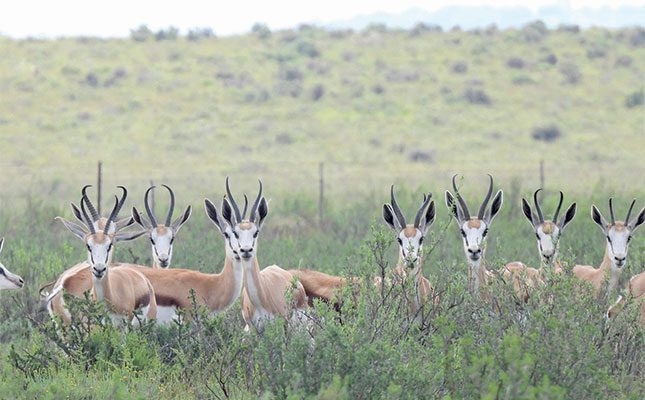
Living for the future
Battenhausen’s love for farming gives him the strength to work hard for what he wants to achieve.
“Passion is much more important than the desire to make money. It feels good when a business is successful and the budget is in the green, but joy, passion, and family should be equally important,” he says.
Battenhausen believes that one of the cornerstones of his success is his trusted team of workers.
“I do my best to be firm but fair. An important investment in my farming business is my people. If I can trust them and delegate tasks to them, it frees up time in my schedule. This enables me to make better decisions,” he says.
He acknowledges that farmers in South Africa face major challenges, but chooses to focus on the future.
“When we use social media or read the news, it is easy to feel hopeless, but I make the best of what I have and what is within my control,” he says.
Get trusted farming news from Farmers Weekly in Google Top Stories.
➕ Add Farmers Weekly to Google ✔ Takes 10 seconds · ✔ Remove anytime

